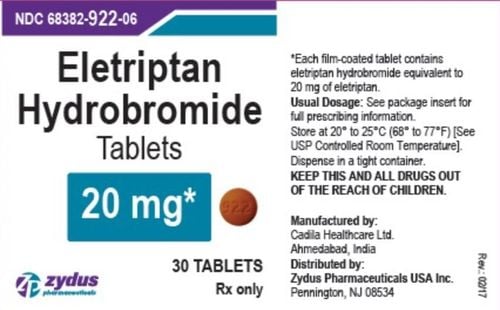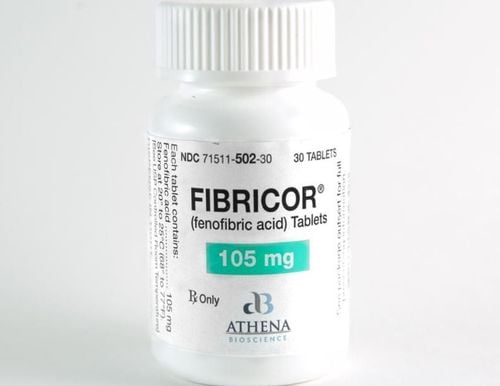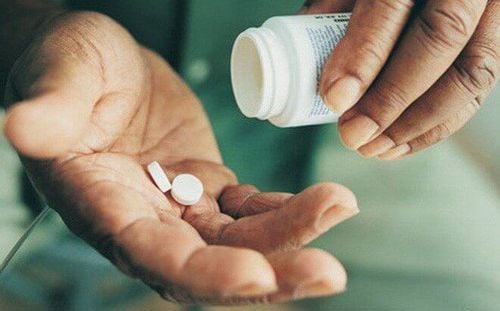This is an automatically translated article.
Cardiovascular disease is increasing day by day in the world. In particular, diet plays an important role in your heart health. What should people with heart disease eat? Here are tips to help you eat healthy for a healthy heart.
1. How does cardiovascular disease affect health?
Heart disease and stroke are the main causes of death worldwide. In the UK, heart disease itself is the biggest cause of death; 15% of males and 10% of females died in 2014. The number of deaths from heart disease has decreased in recent years but it remains one of the main causes of premature death (before the age of 75) in the UK and is leading cause of poor health. But the good news is - it's largely preventable! A healthy diet can help reduce your risk of heart disease and stroke.
The condition that causes most heart attacks and strokes is called atherosclerosis
Atherosclerosis is a buildup of fat inside the arteries (blood vessels) such as the coronary arteries that supply blood to the heart .
The accumulation of fats causes narrowing of the arteries and when they become more severe they can restrict the flow of blood so that enough blood cannot reach the heart.
This can cause symptoms of angina (such as chest pain and shortness of breath).
If the fat breaks (or breaks), a blood clot can form, which can completely block the artery and lead to a heart attack.
A stroke occurs if such breaks occur in the arteries in the brain, stopping the flow of blood.
2. Who is at high risk of cardiovascular disease?
There are several risk factors for atherosclerosis and heart disease. A risk factor is something that increases your chances of getting a disease.
High blood pressure (hypertension). High blood pressure puts a strain on the heart which can lead to damaged blood vessels, putting them at greater risk of heart disease. Smoke. Quitting smoking is the single best thing you can do for your heart health. High cholesterol in the blood. High levels of cholesterol (a type of fat) in the blood can build up in the walls of coronary arteries, restricting blood flow to the heart and the rest of the body. Diabetes . The elevated levels of blood glucose that can occur with type 1 and type 2 diabetes can damage the coronary arteries, increasing the likelihood of developing heart disease. Lack of exercise. Not exercising regularly increases the risk of high blood pressure, high cholesterol and being overweight and obese. These are all risk factors for developing heart disease. Overweight or obese. Research shows that being overweight or obese can raise blood cholesterol levels, raise blood pressure, and increase your risk of developing type 2 diabetes. Family history of heart disease. You are considered to have a family history of cardiovascular disease (CVD) if your father or brother was under 55 when they were diagnosed with cardiovascular disease, or your mother or sister was under 65 when they were diagnosed. diagnosed with cardiovascular disease. Race. For South Asian populations (Bangladeshi, Indians and Pakistanis), and those of African Caribbean ancestry, the risk of CVD may be higher than for the rest of the UK population. Age. Your risk of developing heart disease increases with age. Sex. Men are more likely to develop heart disease earlier than women. The more risk factors you have, the greater your individual risk. But there are things you can do to reduce your overall risk and keep your heart healthy. It's never too late to get started!
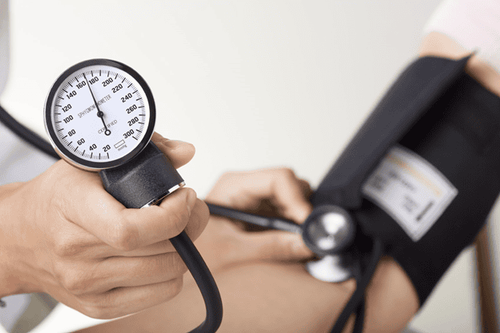
Người bệnh cao huyết áp có nguy cơ mắc bệnh tim mạch
While you can't do anything to change some of these risk factors, there are certain lifestyle behaviors that put you at increased risk that you can change. The main things are:
Smoking A poor diet Drinking too much alcohol Lack of physical activity These factors contribute to the risk of obesity, type 2 diabetes, high blood pressure and high cholesterol levels, are one of the strongest risk factors for heart disease.
3. Healthy eating tips for a healthy heart
3.1 Eat to keep your heart healthy Heart disease should eat what? The Eatwell Guide is the UK's model of healthy eating for the general population. It is a practical tool to help us make healthy choices about the foods and beverages we choose to consume. Some of the healthy eating guidelines in the Eatwell Guide can be especially relevant if you're looking to eat well to protect your heart. A good diet that includes whole grains, fruits and vegetables, nuts and seeds, oily fish, and choosing unsaturated fats (such as the Mediterranean diet) is important to have good heart health. Following the Eatwell Guide will help you choose a better diet.
3.2 Top Tips for Diet by Race It is known that certain population groups such as South Asians (Bangladeshi, Indians and Pakistanis) and people of African Caribbean origin may be at risk. have higher rates of CVD than the rest of the UK population.
Here are some healthy eating tips for the Ethnic Diet to help you take care of your heart.
Cut down on cooking with ghee, butter, palm oil or coconut oil/milk/cream, as these fats are high in saturated fat. Instead, use oils that are high in unsaturated fats (monunsaturates and polyunsaturates), such as canola, olive and sunflower oils, and spreads. Avoid adding dairy or oils to foods like chapattis or dhal Use lean cuts of red meat like lamb, beef, lamb, and goat, as these can be high in fat. Only occasionally eat foods that are high in calories and fat, such as cakes, cookies, samosas, pakoras, and fried bananas. Salty Indian-style snacks and sweets should also be limited in the diet as they are high in calories, sugar and fat. Choose starchy foods or whole grains like chapatti, whole-grain pitta bread, boiled brown rice or potatoes instead of paratha, puri, or chips. Choose less salty foods like salted fish, bacon, and salty snacks (for example, chips and salted nuts) and don't add salt when cooking. Add vegetables and beans like okra, kidney beans, and black-eyed peas to curries and stews.
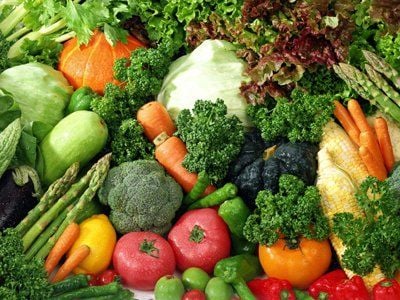
Người bệnh tim nên ăn gì, nên bổ sung rau trong chế độ ăn hàng ngày
3.3 Healthy lifestyle Eating healthy is just one part of a healthy lifestyle. It is important to consider other risk factors that may contribute to your risk of heart disease.
Here are some tips to help you take care of your heart:
Maintaining a healthy body weight and shape can significantly protect your heart. People who are overweight or obese tend to have a higher risk of certain risk factors for heart disease, such as increased blood cholesterol levels, high blood pressure, and an increased risk of developing type 2 diabetes.
You are almost twice as likely to have a heart attack if you smoke as someone who has never smoked. So giving up smoking is one of the most important things you can do to protect your heart. The chemicals in the smoke reduce the amount of oxygen your blood can carry to your heart and body; raise heart rate and blood pressure so that the heart has to work harder; damage the lining of the arteries (blood vessels), causing the accumulation of fat; and also makes the blood more likely to clot (thicken).
Inactivity is a major health risk and one of the main causes of death and ill health in the UK. Physical activity is important to:
Maintain a healthy weight and body shape Help prevent high blood pressure Improve cholesterol levels Prevent blood clots . You should get 150 minutes of moderate-intensity physical activity (when you feel warm and slightly out of breath) a week. You can do this by doing 30 minutes of activity on 5 days of the week, but it can also be broken down into smaller sessions of 10 minutes or more. If you can do more, that's great, but be careful not to overdo it to begin with. If you need to lose weight then you should do 45-60 minutes of moderate exercise per day. Talk to your GP before starting a new exercise program, especially if you have a history of heart disease, stroke, or other health problems.
When you participate in activities, your body needs more oxygen and therefore your heart and lungs have to work harder. This helps your heart and blood vessels work more efficiently over time. It also helps develop your endurance (how long you can be physically active). Brisk walking, dancing, cycling, and swimming are all great examples. So start at a pace that works for you and gradually increase what you can do.
Being more active doesn't mean joining a gym! Even pushing a lawn mower counts!
Regardless of how physically active you are, it is important to avoid sitting for long periods of time, such as when watching TV, using the computer, reading, and traveling by car, bus or train . Sitting for long periods of time is bad for your health and has been linked to weight gain.
Please dial HOTLINE for more information or register for an appointment HERE. Download MyVinmec app to make appointments faster and to manage your bookings easily.
Reference source: nutrition.org.uk




